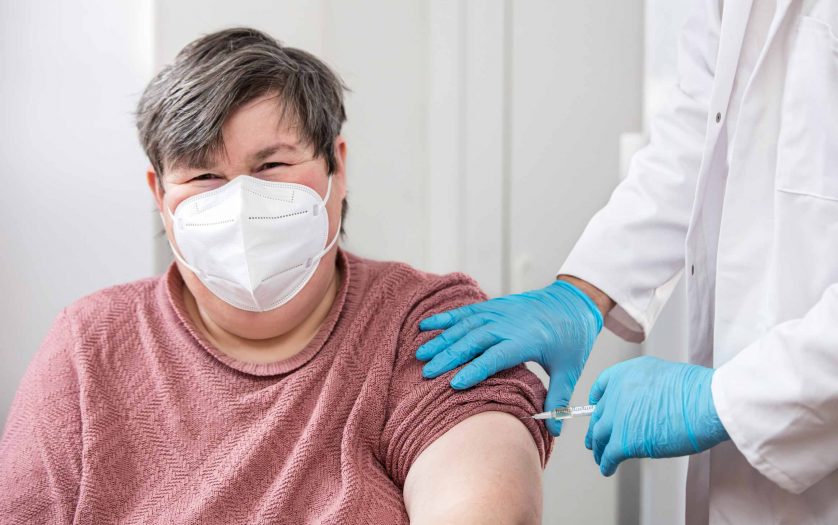
The pandemic impacted the disability community across the Region, with persons with disabilities finding several barriers delaying or preventing them from getting vaccinated for COVID-19. To overcome inequities in access, the Pan American Health Organization (PAHO) developed a pilot project in several countries to improve vaccination access.
Across the Americas, 150 million people (15% of the total population) live with a disability. Research indicates that people with disabilities are less likely to be vaccinated against COVID-19 than the general population due to a multitude of issues, including the lack of accessible and clear information and hesitancy. Physical limitations also often prevent them from accessing health services.
“The Covid-19 Pandemic hit the disability community more than most in terms of deaths and wider social impacts – and shone a light on the barriers the community faces just to get vaccinated,” said Antony Duttine, Advisor for disability and rehabilitation at PAHO.
Persons with disabilities may have underlying health conditions that make them more vulnerable to complications after a COVID-19 infection. Vaccination to prevent severe disease is therefore crucial.
This background led to the creation of a PAHO-led pilot, funded by the United States Government, to improve access and increase COVID-19 vaccine uptake.
The ongoing project began in May 2022, with PAHO acting as a broker to facilitate dialogue between regional health authorities and communities of persons with disability. The pilot took off in Panama, followed by Trinidad and Tobago and was extended to other six Caribbean countries: Bahamas, Barbados, St. Lucia, Grenada, Dominica and the Dominican Republic.
The mantra of the disability development movement, “nothing about us without us,” guided the design of the project, said Duttine, a physiotherapist by training who works to strengthen health equity among this group.
As a first step, PAHO created an electronic questionnaire in English and Spanish to hear directly from persons with disabilities in the pilot countries about their difficulties, fears, and needs. The results helped to gain a better understanding about the challenges faced by persons with disabilities in the Americas.
PAHO found that public information and communication materials on COVID-19 were not in accessible formats. This included, for example, videos without closed captions, or sign language interpretation for people who are deaf or hard of hearing.
For people who are blind or have low vision, materials lacked signage, audio options, large print, braille and alt text (briefly describing the visual content). And for those with cognitive or intellectual disabilities, there was a lack of easy read (simpler text) versions of materials.
“Without this basic information, it was impossible for persons with disabilities to make an informed decision,” said Julia Ribeiro, a Caribbean disability inclusion and vaccines consultant at PAHO based in Trinidad and Tobago.
Ribeiro, who herself has severe to profound hearing loss from birth, was able to provide unique insights to the needs of people with disabilities and their difficulties in accessing healthcare. She cited, for example, the difficulty of deaf people in accessing health care and information during the pandemic – when everyone was wearing facemasks – making lip reading and communication without sign language impossible.
The exercise found similarities in the Caribbean and Latin America. Results of the questionnaire were discussed in several virtual meetings, where disability leaders shared ideas directly with the health sector on how to increase uptake of COVID-19 vaccines in their communities.
PAHO is now developing an online training course aimed at vaccine planners and implementers to guide them on making vaccine services inclusive and accessible. PAHO also created an international sign playlist on its YouTube channel to increase information access to deaf communities.
“What started as a crisis opened the door of opportunity for us and raised attention to the barriers the disability community faces in accessing health,” said Duttine. “With this effort, we hope more people will feel empowered to seek health services and the COVID-19 vaccine.”
Celebrated on 3 December, the International Day of Persons with Disabilities promotes the rights and well-being of persons with disabilities at every level of society and development and raises awareness about the situation of persons with disabilities in all aspects of political, social, economic, and cultural life.








